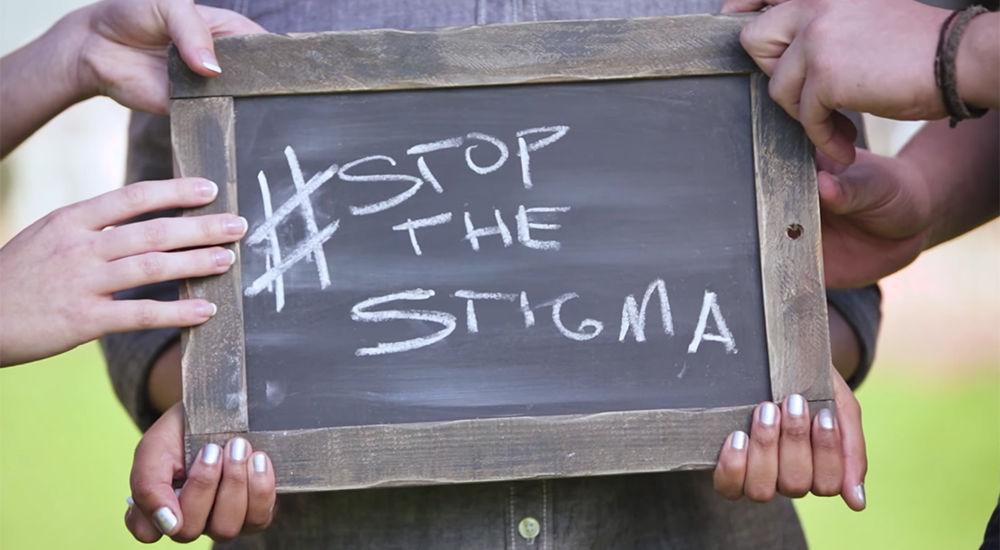When Daniel Goldstein and Noah Martinson set out to the Brickyard to talk to students about their experiences with suicide, they never imagined the impact it would have. The two counselors from NC State’s Counseling Center were afraid that no one would even want to approach them.
However, students did approach the pair and Goldstein said this emboldened others to do the same. More and more people began to open up to them with their own powerful stories.
“We were like, oh there is a lot more energy than we expected,” Martinson said. “A lot more courage than we expected.”
“When there is some invitation from another human being, it’s like there’s been some permission given to talk about this unspeakable thing,” Goldstein said. “And so we had all these students, and we were really impacted, and then the idea was like, could we make a film out of this?”
Martinson and Goldstein knew they had started something special, and they wanted to keep the energy going. This is what led to their Emmy-winning, eight-minute film #StopTheStigma. It has racked up more than 7,500 views since being posted to YouTube in September 2015, and it features students Wyatt Bond, Claudia McDonald and Baysha Bernales sharing their stories via chalkboard.
Originally, the idea was to spread awareness about how suicide affects men specifically as it was Sigma Pi, a fraternity at NC State that had donated money to the Counseling Center to fund this campaign. Research also shows that suicide affects men at a higher rate than women.
“We know that there’s no population, there’s no gender, there’s no ethnicity that is not touched by suicide,” Goldstein said. “But there are certain groups that are more vulnerable and complete suicide at higher rates, and we were going to try and target just one of these populations.”
Their original hashtag was #NotOneMan, but this idea quickly changed as students across the gender spectrum approached them in increasing numbers. They soon wanted their project to be more universal, and they eventually came up with #StopTheStigma.
“We adjusted on the fly,” Martinson said. “There are lots of others who are struggling with this, too, so it felt like an injustice to stick with this Not One Man idea.”
Goldstein and Martinson started filming the #StopTheStigma video while still in the Brickyard with a camera they rented from D.H. Hill Library. They laughed about how the poor quality of their work inspired them to seek help before continuing the project.
“We were very un-Steven Spielberg-y,” Martinson said. “Even so, in that little bit of footage, we were like, there’s something here, something that needs to be told, but by someone better than us at capturing that.”
They attended a storytelling workshop on campus that was hosted by Nathan Clendenin, the founder and CEO of a Durham-based marketing firm called StoryDriven. Goldstein and Martinson were so impressed by the presentation that they decided to ask the firm to collaborate with them. StoryDriven agreed.
“I want to just give them so much credit,” Goldstein said. “They’re not just filmmakers to make money; clearly they have a social justice bent and an interest in telling redemptive stories. The sincerity that they brought to this project, their care and belief in it, came through, too.”
Filming resumed. Wyatt, Claudia and Baysha wrote their stories on a chalkboard and gave a voice to a topic that so many people are scared to discuss out loud.
“We’re unpracticed as a culture in talking about death,” Goldstein said. “In America, we tend not to talk about death and we especially tend not to talk about suicide. There’s a lot of shame associated with it.”
The whole mission of the project was to spark conversation and lose the stigma.
Goldstein and Martinson explained how the silence surrounding suicide can worsen suicidal tendencies by exacerbating feelings of isolation and loneliness. Research shows that if people would talk about these things more openly, it could lead to a stronger sense of community and connectedness, therefore decreasing suicide rates. Wyatt, Claudia and Baysha were more than willing to try this out.
“Those three were ready to go in a lot of ways,” Goldstein said. “We wanted to be as clear as possible that we weren’t trying to pressure people. We had to talk through the realities of this, — they’re taking a risk. Them putting themselves and their stories out there is a real, real risk.”
“I think we feel a little bit protective of them,” Martinson said. “When we were talking about it at the beginning, this was the scenario we wanted to talk about — what if this gets really big?”
Martinson explained that media put out by the Counseling Center often does not receive a lot of attention and that they were not sure if the film would be heavily watched, or if it would go unnoticed on their Facebook page. Martinson and Goldstein credit its success to the students.
“It’s really important to thank the students,” Martinson said. “If they hadn’t showed up the way they showed up, it would’ve just been, ‘Oh, OK, we had an interesting experience in the Brickyard.’”
“It’s not our film,” Goldstein said. “They’re the central characters. It’s their story.”
They also give credit to Angel Bowers, the director of outreach in the Counseling Center, and to Monica Osburn, the director of counseling services, for their support. They are happy with the success of #StopTheStigma and encourage all students struggling with depression to reach out for help. The Counseling Center is always available to those in need and loved ones should make themselves a resource as well.
“If you think something’s wrong, the first step is just to ask,” Goldstein said. “Maybe you won’t know the exact right thing to say, but coming at the person with compassion, care and sincerity is a really good place to start.”













